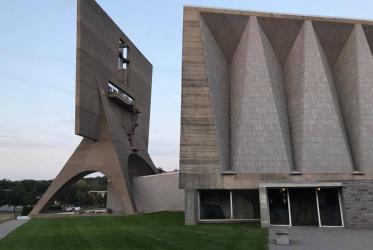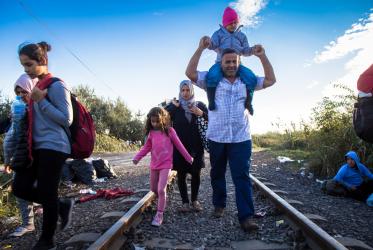Displaying 41 - 60 of 70
WCC appoints new representative to the UN
27 October 2017
Dozens of countries sign nuclear weapons ban treaty
20 September 2017
Emily Welty: tide of hope for a world free from nuclear weapons
19 September 2017
Tveit: search for unity “an urgent need today”
09 September 2017
In Charlottesville, can “the power of love” prevail?
14 August 2017
In Syria and Iraq, minorities must come out of the darkness
28 November 2016
New Executive Committee members elected in Trondheim
28 June 2016
International affairs facilitator reflects on pilgrimage
31 March 2016
Fleeing from – rather than to – a place
10 February 2016
Symposium focuses on religion, violence, extremism
04 February 2016
WCC urges responsibility for and support to the refugees in Europe
04 September 2015










